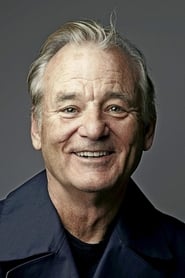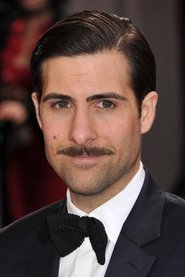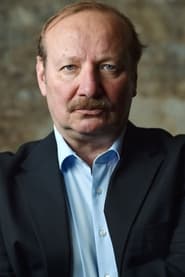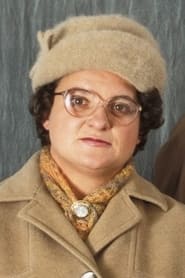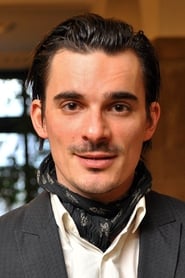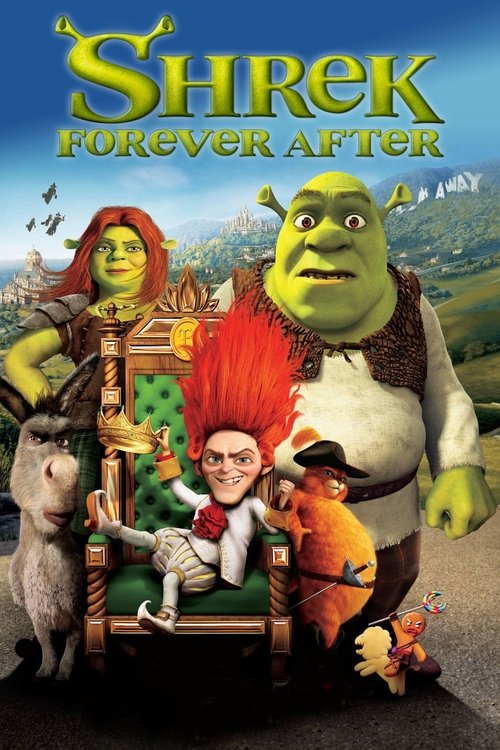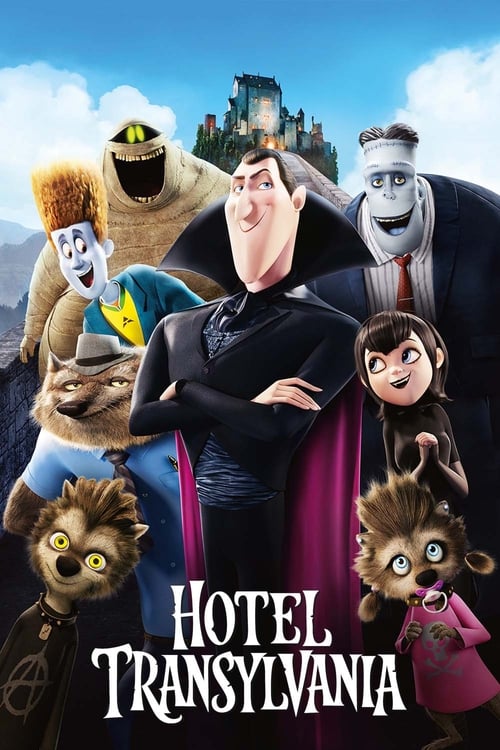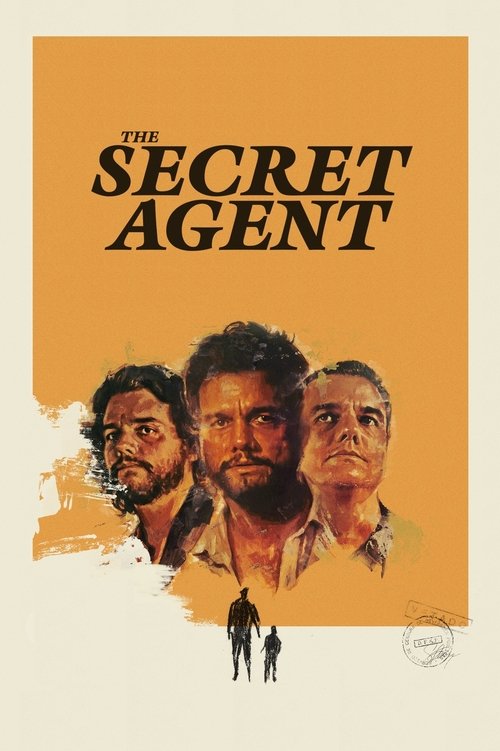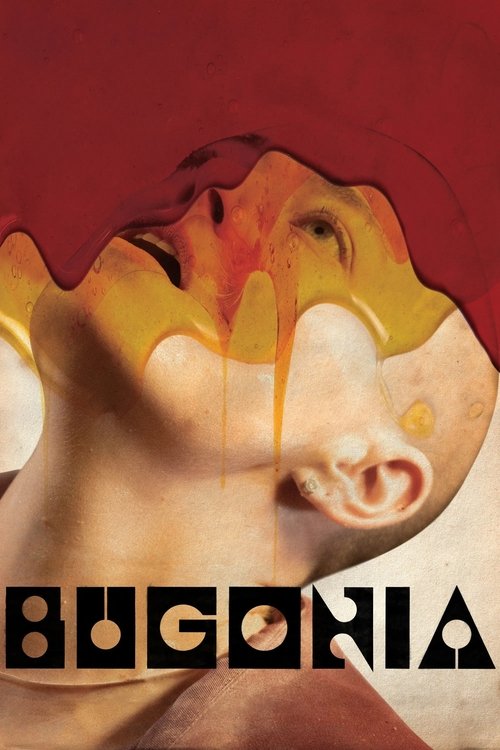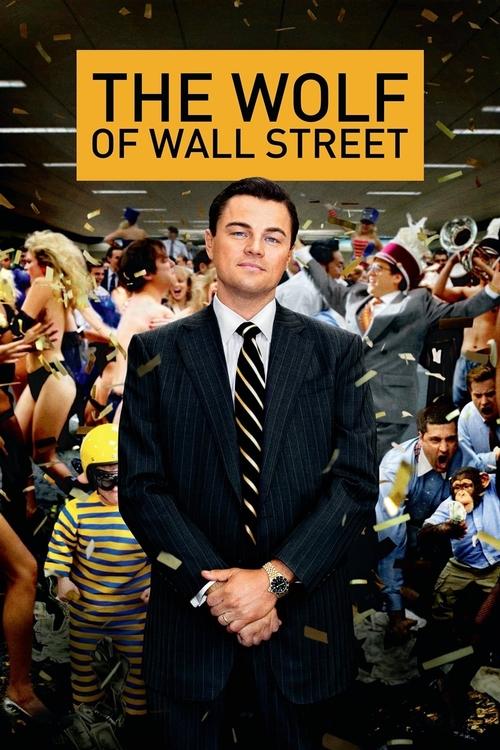
Ask Your Own Question
What is the plot?
The story of The Grand Budapest Hotel unfolds through a richly layered narrative beginning in the present day, circa 2014, with a young woman visiting the faded grandeur of the once-glorious Grand Budapest Hotel. She meets the elderly Zero Moustafa (F. Murray Abraham), the hotel's current owner, who begins to recount the hotel's golden era in the 1930s, a time of elegance, intrigue, and looming political upheaval.
The tale rewinds to the 1930s, introducing a young Zero Moustafa, a timid and inexperienced immigrant with no family or prospects, who is hired as a lobby boy at the Grand Budapest Hotel, a luxurious alpine retreat in the fictional Republic of Zubrowka. There, he meets the hotel's legendary concierge, Monsieur Gustave H., a man of impeccable manners, sharp wit, and unshakable dedication to his craft. Gustave is exacting and charismatic, running the hotel with an iron fist while maintaining a personal charm that endears him to the wealthy guests, especially the elderly Madame Céline Villeneuve Desgoffe und Taxis, known simply as Madame D. Gustave is her devoted lover, attending to her every whim with poetic recitations and tender care.
Their relationship sets the stage for the story's central mystery. Madame D. dies suddenly, her death shrouded in suspicion. Gustave, who was with her at the time, is accused of poisoning her--a charge that shocks the hotel and the community. The accusation comes from Madame D.'s son, Dmitri Desgoffe und Taxis, a volatile and ruthless man who contests the inheritance of his mother's vast fortune and the valuable Renaissance painting Boy with Apple. Dmitri's henchman, the cold and merciless Jopling, enforces Dmitri's will with brutal efficiency.
Gustave is arrested and imprisoned, framed for Madame D.'s murder. In prison, Gustave's charm and resourcefulness come to the fore as he befriends a gang of hardened inmates. Meanwhile, Zero, determined to prove Gustave's innocence, enlists the help of his fiancée Agatha, a skilled baker at Mendel's Bakery. Agatha concocts a clever plan to smuggle stone-working tools hidden inside her exquisite pastries to Gustave in prison, enabling him and his fellow prisoners to tunnel their way out through the sewage system. During the escape, one unnamed prisoner sacrifices himself to ensure the others' freedom, a poignant moment underscoring loyalty and sacrifice.
Once free, Gustave and Zero set out to uncover the truth behind Madame D.'s death. They seek out Serge X., Madame D.'s butler, who holds crucial information. However, Serge betrays Gustave and is killed by Jopling before he can reveal the full story. This betrayal deepens the mystery and heightens the stakes, forcing Gustave and Zero into a desperate chase.
The pursuit leads to a dramatic confrontation on a snowy cliffside. Jopling, relentless and deadly, attacks Gustave and Zero, but in a tense and violent struggle, Zero pushes Jopling off the cliff, saving Gustave from a fatal fall. This moment cements the bond between mentor and protégé, a relationship built on trust and mutual respect amid chaos.
Returning to the Grand Budapest Hotel, Gustave, Zero, and Agatha find the once-glamorous establishment now commandeered by fascist troops on the brink of war. The hotel, a symbol of a lost era, is transformed into a military barracks, its halls echoing with tension and impending doom. Agatha bravely infiltrates the hotel to retrieve the Boy with Apple painting, but Dmitri spots her. A chaotic firefight erupts, with Dmitri shooting at Gustave and Zero, triggering a spontaneous shootout involving soldiers and hotel guests alike. The scene is a vivid tableau of violence and desperation, punctuated by the shouts, gunfire, and the frantic scramble for survival.
Amid the chaos, the group discovers a hidden second will on the back of the Boy with Apple painting. This secret testament reveals that Madame D. was the true owner of the Grand Budapest Hotel and that she bequeathed the entire estate to Gustave should she be murdered. This revelation exonerates Gustave, exposing Dmitri as the true murderer and forcing him to flee the country as the prime suspect.
With his name cleared, Gustave inherits Madame D.'s fortune and the hotel, becoming one of the wealthiest men in Zubrowka. Zero and Agatha marry in a ceremony officiated by Gustave, symbolizing hope and renewal amid the darkening political landscape.
However, the story's bittersweet tone emerges in the final scenes aboard a train. As Gustave, Zero, and Agatha travel, they are stopped by thuggish soldiers who tear up Zero's refugee papers. Gustave confronts the soldiers, standing defiantly, but is shot and killed in the ensuing altercation. His death marks the end of an era, a poignant loss of the charismatic figure who embodied the hotel's spirit.
Zero inherits Gustave's fortune and the Grand Budapest Hotel, vowing to maintain it in memory of Gustave and Agatha. Tragically, Agatha and their infant son succumb to the Prussian grippe, a devastating illness that leaves Zero alone to carry the legacy forward.
The narrative closes in the present day, with the young woman sitting beside the statue of the Author who immortalized these events in his book. The once-majestic Grand Budapest Hotel stands dilapidated, a monument to a vanished world of elegance, loyalty, love, and loss, preserved through Zero's memories and the enduring story of Gustave H. and his extraordinary life.
What is the ending?
In the ending of The Grand Budapest Hotel, Zero, now an older man, reflects on his past and the legacy of M. Gustave. The hotel is in decline, and the world around it has changed dramatically. Zero, who has become the owner of the hotel, remembers the adventures he had with Gustave, who was wrongfully imprisoned and later killed. The film concludes with a sense of nostalgia and loss, emphasizing the fleeting nature of beauty and friendship.
As the story unfolds towards its conclusion, we find ourselves in a somber yet reflective atmosphere. The narrative shifts to the present day, where an older Zero Moustafa, now the owner of the Grand Budapest Hotel, recounts his memories to a young writer who is visiting the hotel. The hotel, once a vibrant and luxurious establishment, now stands in a state of disrepair, mirroring the decline of the world around it.
Zero begins his tale by recalling the events that transpired during his time as a lobby boy under the tutelage of M. Gustave H., the hotel's charismatic concierge. He describes how Gustave was wrongfully accused of murdering Madame D., a wealthy guest who had a close relationship with him. The story takes a darker turn as Gustave is imprisoned, and Zero, driven by loyalty and friendship, embarks on a quest to clear his mentor's name.
As the narrative progresses, we witness the intense and often absurd escapades that Zero and Gustave undertake to uncover the truth. They navigate a world filled with eccentric characters, including the sinister Dmitri, Madame D.'s son, who seeks to claim his mother's fortune. The tension escalates as Gustave and Zero evade capture, leading to a series of comedic yet perilous situations.
In the climax, Gustave is ultimately betrayed, leading to his tragic demise in prison. This moment is heart-wrenching, as Zero, who has grown to admire and love Gustave as a father figure, is left devastated by the loss. The emotional weight of this betrayal and the loss of their shared dreams hangs heavily in the air.
As the story draws to a close, we return to the present, where Zero reflects on the impact of these events on his life. He reveals that he married Agatha, a pastry chef he met during his adventures, and they had a family together. However, the joy of his personal life is tinged with the sorrow of losing Gustave, who had taught him the importance of beauty, art, and friendship.
In the final scenes, Zero stands in the now-dilapidated Grand Budapest Hotel, a shadow of its former self. He shares a poignant moment with the young writer, emphasizing the transient nature of life and the memories that linger long after the people we love are gone. The film closes with a sense of nostalgia, underscoring the themes of loss, the passage of time, and the enduring impact of relationships.
In summary, the fates of the main characters are as follows: M. Gustave H. is tragically killed in prison, leaving behind a legacy of charm and loyalty. Zero Moustafa, while successful in owning the hotel, carries the weight of his memories and the loss of his mentor. The Grand Budapest Hotel itself stands as a monument to a bygone era, reflecting the beauty and tragedy of the past.
Is there a post-credit scene?
The Grand Budapest Hotel does not have a post-credit scene. The film concludes with a poignant ending that wraps up the story without any additional scenes after the credits. The final moments focus on the reflections of the character Zero Moustafa as he recounts his memories of the hotel and his relationship with Monsieur Gustave H., emphasizing themes of nostalgia, loss, and the passage of time. The credits roll without any further content, leaving the audience to ponder the film's emotional depth and the fate of its characters.
What is the significance of the painting 'Boy with Apple' in the story?
The painting 'Boy with Apple' is a central plot element in 'The Grand Budapest Hotel.' It is a valuable artwork that belongs to Madame D., a wealthy guest at the hotel. After her mysterious death, the painting becomes the focal point of a legal battle between her son Dmitri and Gustave H., the hotel's concierge, who claims that Madame D. bequeathed it to him. The painting symbolizes wealth, desire, and the absurdity of the characters' pursuits, ultimately leading to a series of comedic and dramatic events.
How does Gustave H. and Zero's relationship develop throughout the film?
Gustave H., the meticulous concierge of the Grand Budapest Hotel, forms a close bond with Zero Moustafa, the lobby boy. Initially, Zero is inexperienced and timid, but under Gustave's mentorship, he gains confidence and becomes resourceful. Their relationship deepens as they navigate the chaos following Madame D.'s death, with Gustave treating Zero like a surrogate son. This emotional connection is highlighted during their adventures, showcasing loyalty, friendship, and the impact of mentorship.
What role does the character of Dmitri play in the conflict of the story?
Dmitri, the son of Madame D., serves as the primary antagonist in 'The Grand Budapest Hotel.' He is portrayed as greedy and ruthless, determined to reclaim his mother's fortune and the valuable painting 'Boy with Apple.' His character embodies entitlement and malice, as he seeks to eliminate Gustave H. and Zero, whom he sees as obstacles. Dmitri's confrontations with Gustave are marked by tension and dark humor, illustrating the lengths he will go to secure his inheritance.
What is the significance of the prison escape scene?
The prison escape scene is a pivotal moment in 'The Grand Budapest Hotel.' After Gustave is wrongfully imprisoned for the murder of Madame D., Zero orchestrates a daring rescue. The scene is filled with tension and humor, showcasing Zero's resourcefulness and loyalty to Gustave. The escape highlights the absurdity of their situation, with Gustave maintaining his composure and charm even in dire circumstances. This moment solidifies their bond and propels the narrative forward, emphasizing themes of friendship and resilience.
How does the film depict the theme of nostalgia through the character of Zero?
Zero Moustafa, as the older version of the lobby boy, serves as the narrator of the story, reflecting on his past experiences at the Grand Budapest Hotel. His nostalgia is palpable as he recounts the grandeur of the hotel and his adventures with Gustave H. The film uses rich visual details, such as the hotel's opulent decor and the vibrant colors of the past, to evoke a sense of longing for a bygone era. Zero's memories are tinged with both joy and melancholy, illustrating the impact of time on relationships and places.
Is this family friendly?
"The Grand Budapest Hotel" is a visually stunning film with a whimsical style, but it does contain several elements that may be considered objectionable or upsetting for children or sensitive viewers. Here are some aspects to consider:
-
Violence: The film includes scenes of violence, including a murder that is depicted in a somewhat graphic manner. There are also moments of physical altercations and gunfire.
-
Death: The theme of death is prevalent, with characters discussing mortality and experiencing loss. Some scenes may be emotionally heavy, particularly those involving the aftermath of violence.
-
Language: There are instances of strong language, including profanity, which may not be suitable for younger audiences.
-
Adult Themes: The film touches on themes of betrayal, greed, and the darker aspects of human nature, which may be complex for children to understand.
-
Sexual Content: There are references to sexual relationships and innuendos, as well as a scene involving nudity, which may be inappropriate for younger viewers.
-
Dark Humor: The film employs a style of dark humor that may not resonate with all audiences, particularly younger children who may not grasp the nuances.
Overall, while "The Grand Budapest Hotel" is a work of art with rich storytelling and visual appeal, it contains elements that may not be suitable for all family members, especially younger children or those sensitive to violence and adult themes.











